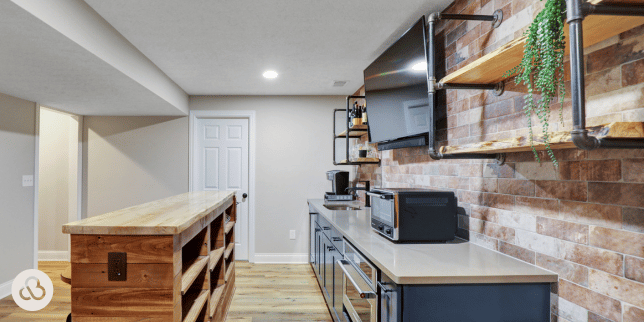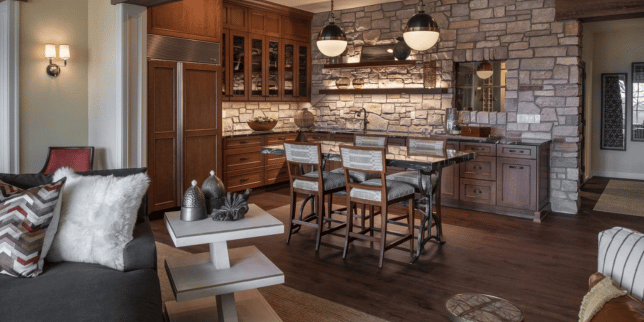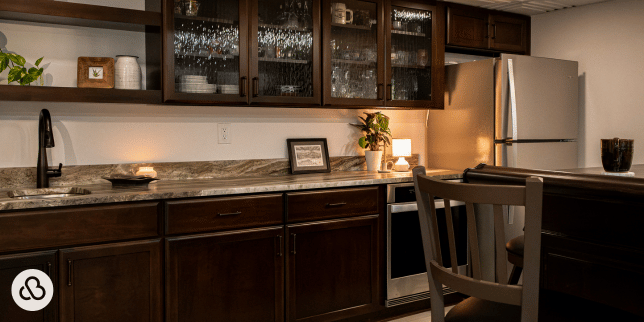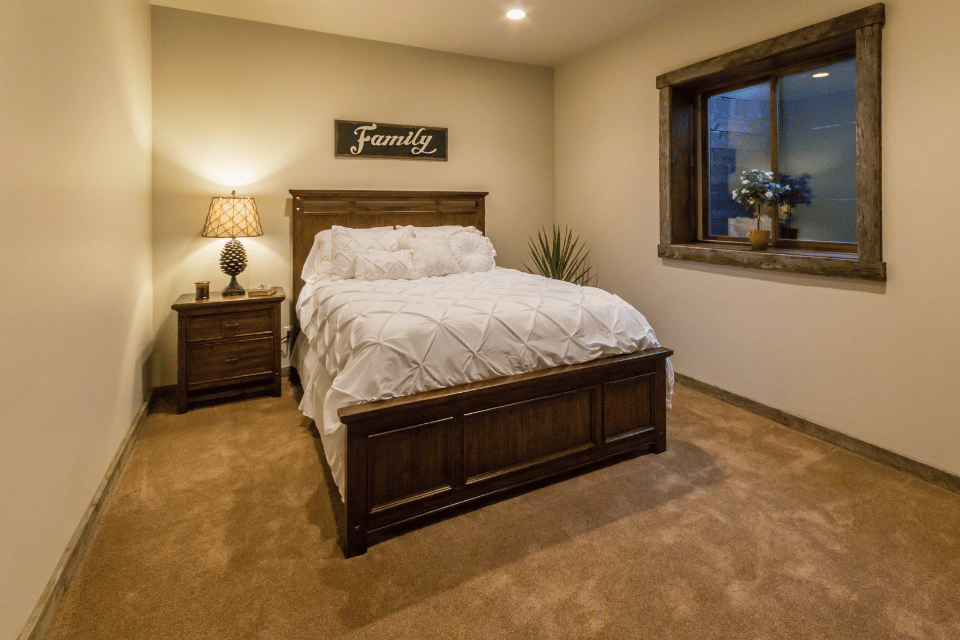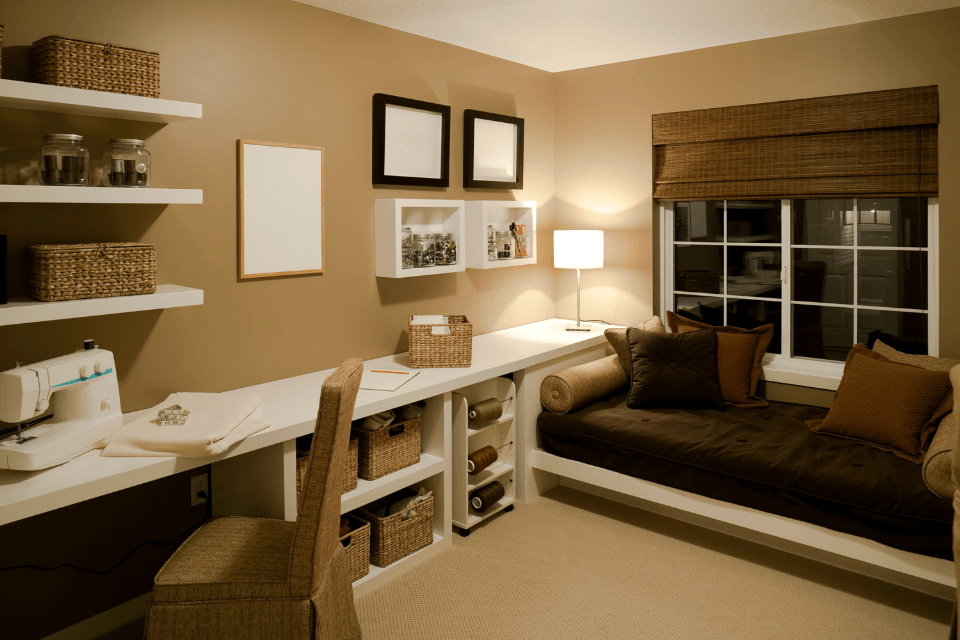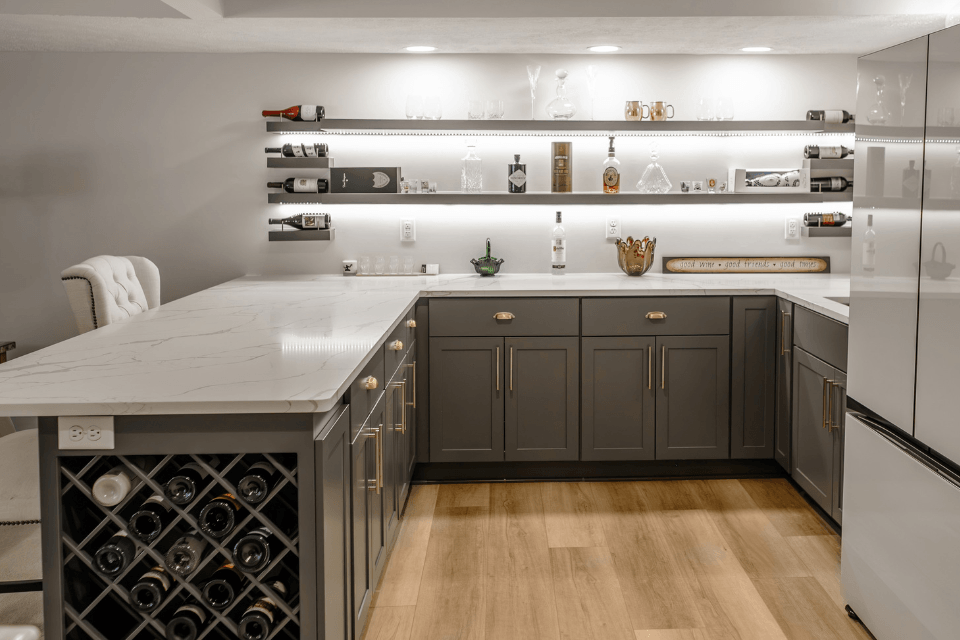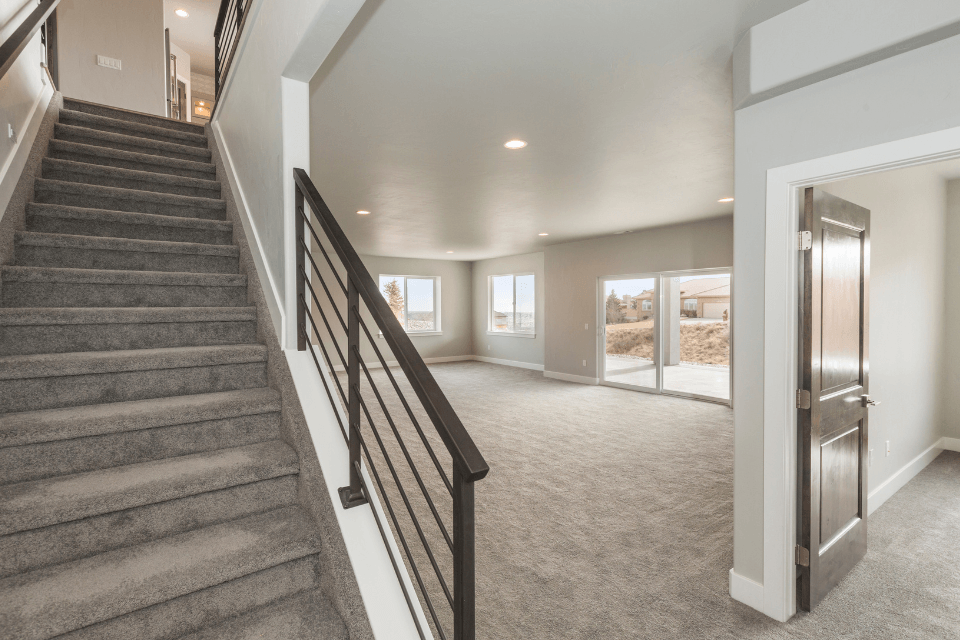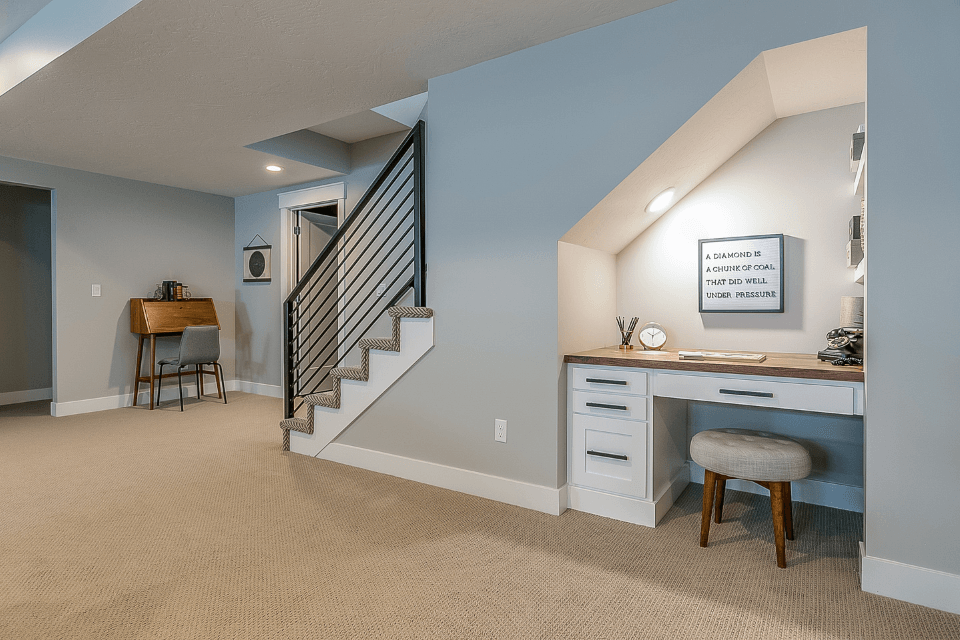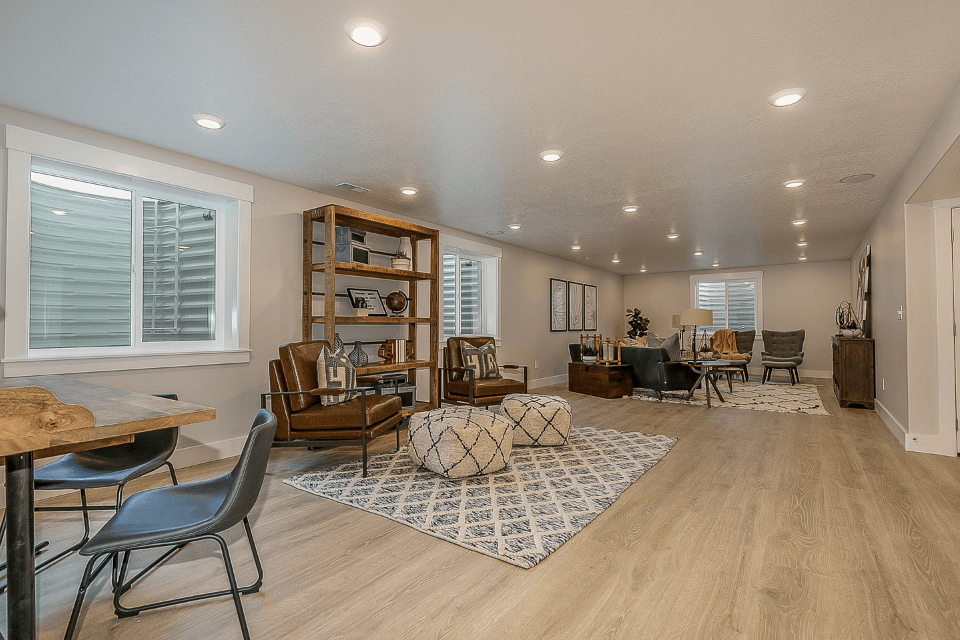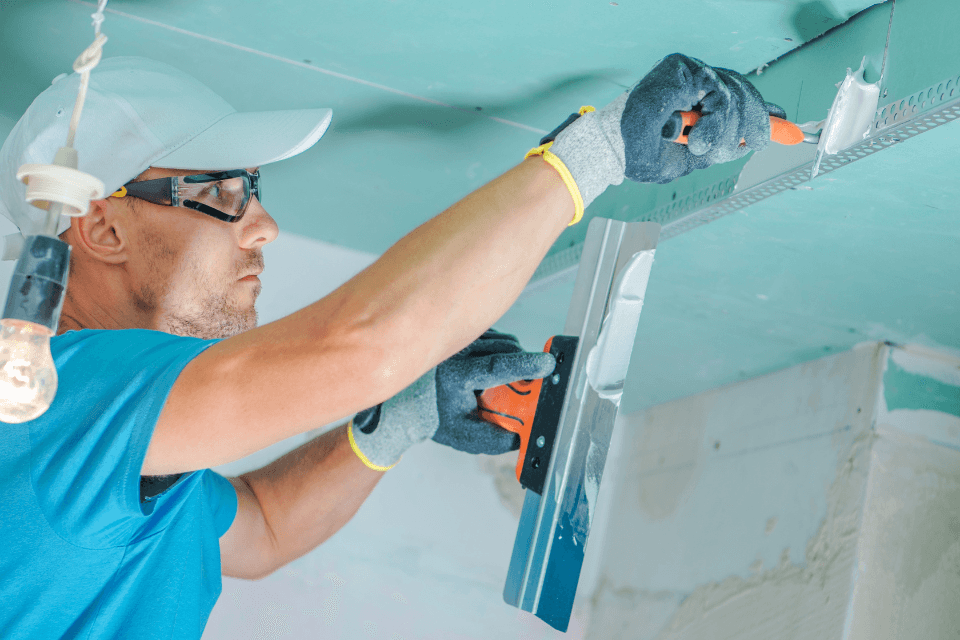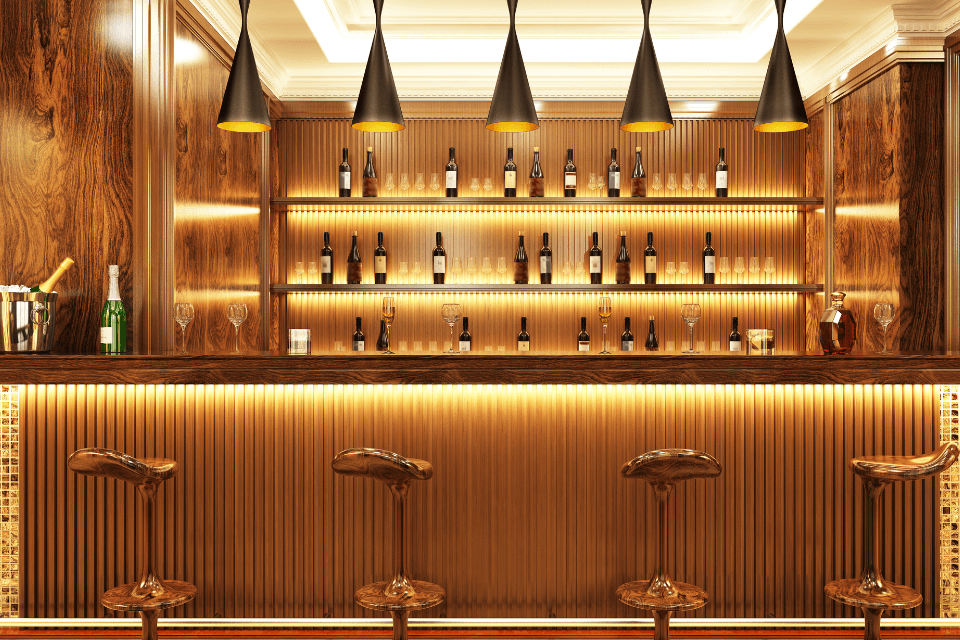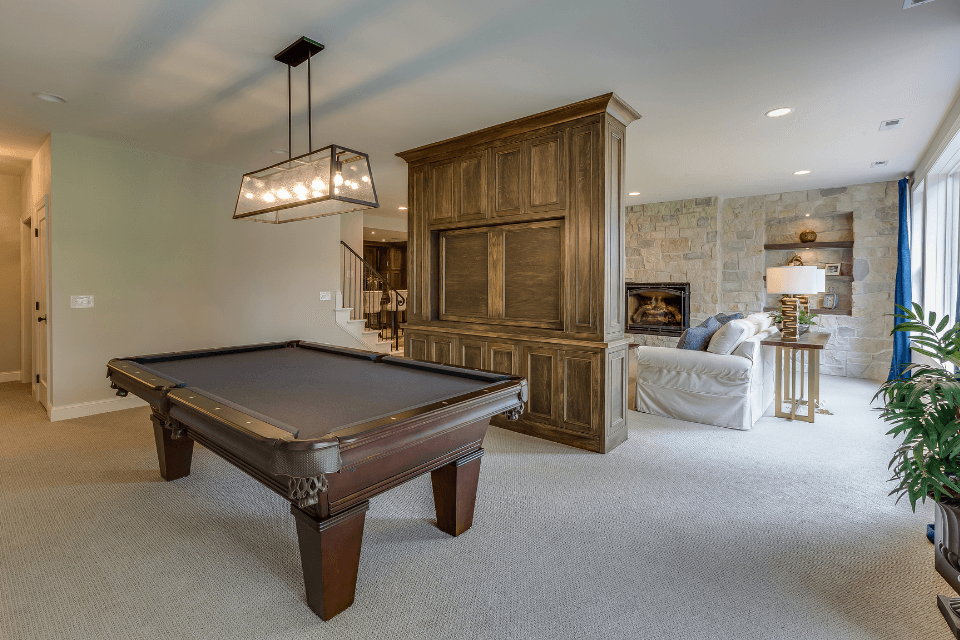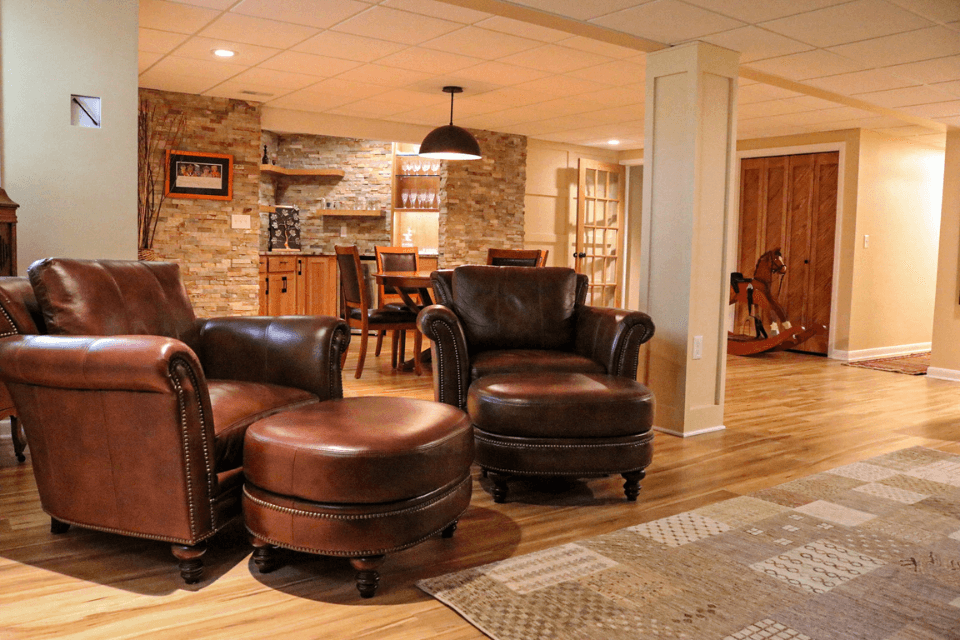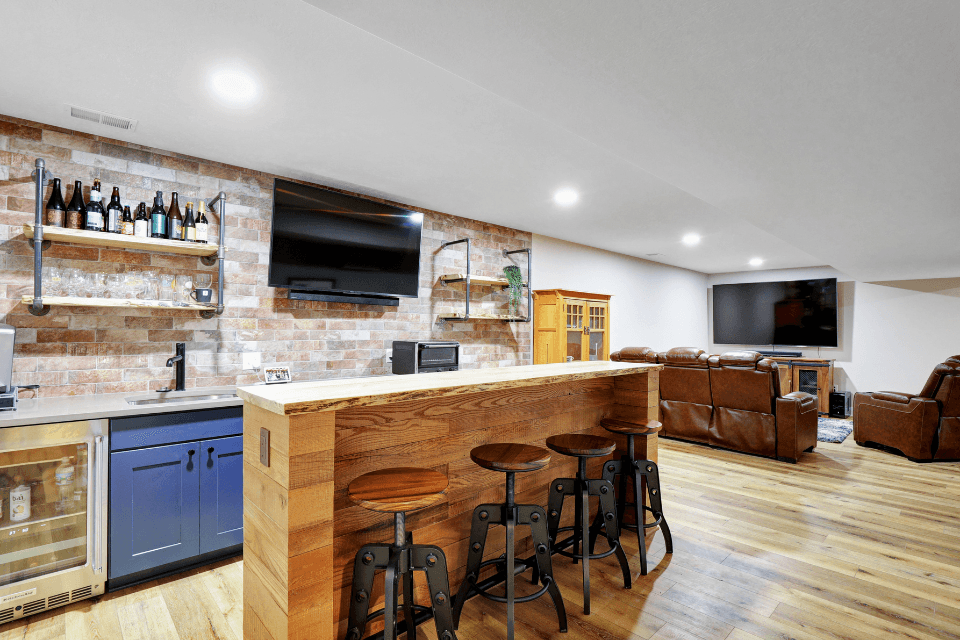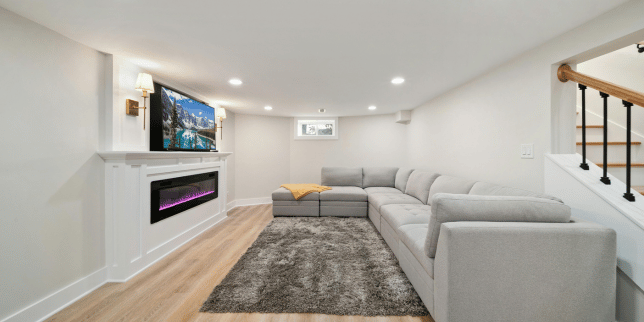
Trying to turn your basement into a space that looks great and follows your investment goals? With so many upgrade options, it's easy to worry that staying on track with your budget means sacrificing style or functionality.
At Custom Built, we’ve helped hundreds of Michigan homeowners transform their basements. Our approach? Focus on practical upgrades that add real function and comfort, without unnecessary extras.
Whether you’re starting from scratch or improving a finished space, these 10 upgrades deliver serious value and everyday enjoyment. We’ve also added design considerations for each one to help guide your decisions:
1. Luxury Vinyl Tile (LVT) Flooring
PC: HGTV
Luxury vinyl tile is the gold standard for finished basements. It’s waterproof, scratch-resistant, and easy to clean, making it ideal for moisture-prone lower levels. With styles that mimic hardwood and stone, it adds a high-end look without the maintenance of traditional materials.
Design Considerations:
-
Choose wider planks for a more modern aesthetic.
-
Lighter colors help brighten darker basements.
-
Consider laying it diagonally to visually expand a narrow room.
-
Pair with area rugs to define zones like family rooms or office nooks.
2. Painted Open Ceiling
PC: Family Handyman
A painted ceiling skips the cost of drywall and framing while giving your basement a finished, industrial feel. It keeps mechanical systems accessible and lets you direct more budget to finishes you’ll see and use every day.
Design Considerations:
-
Use matte black or charcoal to minimize the visibility of pipes and wires.
-
Add track lighting or LED can lights to offset the darker ceiling color.
-
If your ductwork hangs low, use color to blend it rather than hide it.
-
Works best in rec rooms, home gyms, and workshop areas.
3. LED Recessed Lighting
PC: Lowe’s
Basements typically lack natural light. LED recessed lighting is energy-efficient, long-lasting, and dramatically improves visibility and ambiance.
Design Considerations:
-
Space fixtures evenly to avoid dark corners.
-
Use 2000K–3000K bulbs for a warm, inviting glow.
-
Install dimmer switches for mood control.
-
Accent lighting can highlight feature walls, shelving, or artwork.
4. Functional Office Nook
PC: The Spruce
With remote work and homework needs on the rise, adding a small workspace can make your basement much more functional. Tucked under the stairs or along a hallway, an office nook creates focus and flow without needing a whole room.
Design Considerations:
-
Add built-in shelves or wall-mounted storage above the desk for added convenience.
-
Use sconce lighting or under-cabinet LEDs to keep the area well-lit.
-
A reclaimed wood desktop can add warmth without major cost.
-
Keep materials consistent throughout the basement for a unified look.
5. Basic Wet Bar or Beverage Center
A scaled-down wet bar brings convenience for entertaining and everyday use. You don’t need a full second kitchen, just a few key components like a sink, base cabinets, and a mini fridge.
Design Considerations:
-
Position near existing plumbing (e.g., bathroom or laundry room).
-
Add open shelving or floating shelves for displaying glassware and decorative items.
-
Keep finishes simple but cohesive with your basement palette.
-
Leave room for bar stools or a small counter overhang for casual seating.
6. Accent Wall or Feature Area
PC: Pinterest
A feature wall instantly upgrades your basement design. It adds personality, breaks up long wall runs, and creates a natural focal point without heavy cost.
Design Considerations:
-
Consider shiplap, board-and-batten, or peel-and-stick wallpaper.
-
Create contrast with bold paint or a darker shade of your primary color.
-
Use it to anchor your TV, wet bar, or built-in shelving.
-
Install sconces or uplighting to draw attention to the feature.
7. Under-Stair Storage or Reading Nook
PC: Decoist
That awkward space under the stairs can become highly functional. Turn it into a closet, built-in cabinet, or cozy reading bench. It’s a great way to boost storage without adding square footage.
Design Considerations:
-
Use closed cabinetry for storage, and open shelving for display.
-
For reading nooks, add a cushioned bench, a wall sconce, and throw pillows.
-
Use matching trim to blend the nook seamlessly into the surrounding walls.
-
If headroom is limited, create cubbies or baskets for seasonal storage.
8. Wall-Mounted Electric Fireplace
PC: The Spruce
Electric fireplaces add ambiance and visual interest. They're easy to install, low-maintenance, and safer in family spaces than gas or wood-burning options.
Design Considerations:
-
Select a linear model with LED flame effects for a contemporary appearance.
-
Surround it with tile, stone veneer, or a simple painted bump-out.
-
Add built-ins on either side to create a full media wall.
-
Consider heat output options to supplement warmth in colder months.
9. Custom Built-In Shelving
Custom-looking shelving adds both storage and polish. Using modular kits or semi-custom pieces gives you a high-end look without the high-end cost.
Design Considerations:
-
Paint or trim the shelving to match your baseboards and walls.
-
Style open shelves with books, plants, and family photos for warmth.
-
Install lower cabinets for hidden storage.
-
Anchor shelves around TVs or in corners to define the space.
10. Wall-Mounted TV and Sound System Prep
PC: Houzz
Prepping your walls and wiring for future tech saves money and headaches down the line. Even if you’re not ready for a surround system now, you’ll be set when you are.
Design Considerations:
-
Pre-wire for speakers and HDMI while the walls are open.
-
Utilize an in-wall cable management kit for a clean, professional appearance.
-
Plan wall space based on screen size and viewing distance.
-
Add a recessed niche or cabinet for equipment if space allows.
Next Steps to Remodeling Your Basement
A beautiful, functional basement doesn’t have to exceed your investment goals. With the right upgrades, you can get the look and features you want at a smart price.
From clever lighting and flooring to creative nooks and cozy features, these ten cost-effective upgrades will help you revitalize your space without stretching your investment goals.
At Custom Built, we help Michigan families make informed decisions that maximize every square foot of their basements.
Thinking about remodeling your basement? Let’s talk about smart upgrades that support your goals and fit your budget.
Now that you know more about the top 10 cost-effective upgrades for your basement remodel, let’s explore what the first step of the Custom Built Proven Process looks like with a new basement finish, how much your project will cost, and the ways you can elevate your space:
-
What is a Discovery Call with Custom Built? - This article details what your first call with Custom Built looks like as you start planning your remodel.
-
How Much Does Basement Finishing Cost in Lansing, MI? - Finishing your basement for the first time? Learn more about how much it’ll cost today.
-
5 Ways to Elevate Your Basement Space - A guide to upgrading your existing basement space, from home gyms to installing stylish lighting solutions.
Aaron has been in the building industry his entire life. He worked in his family’s housing business growing up in Dewitt, MI, and for nearly 40 years, built homes in the Mid-Michigan area. He has also worked with the Greater Lansing Home Builder’s Association since he was 18 years old.
Topics:







